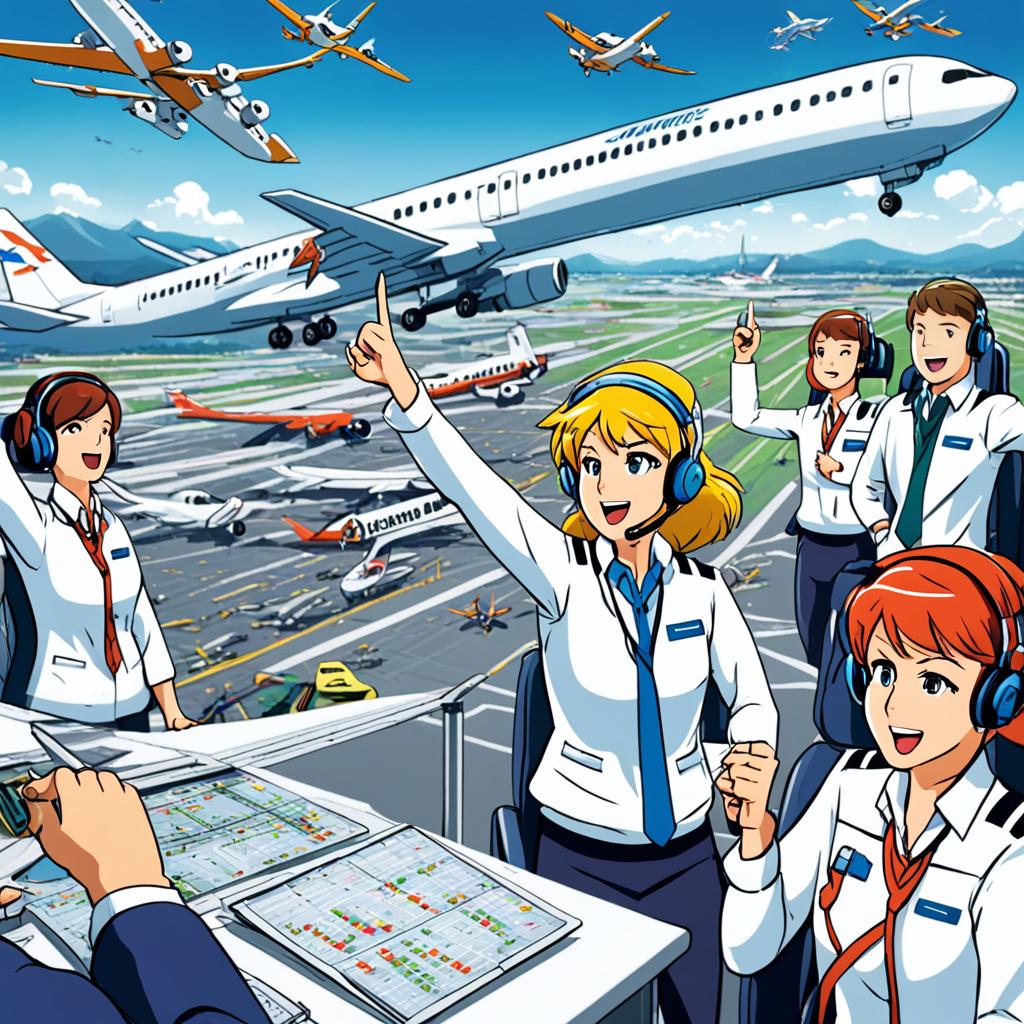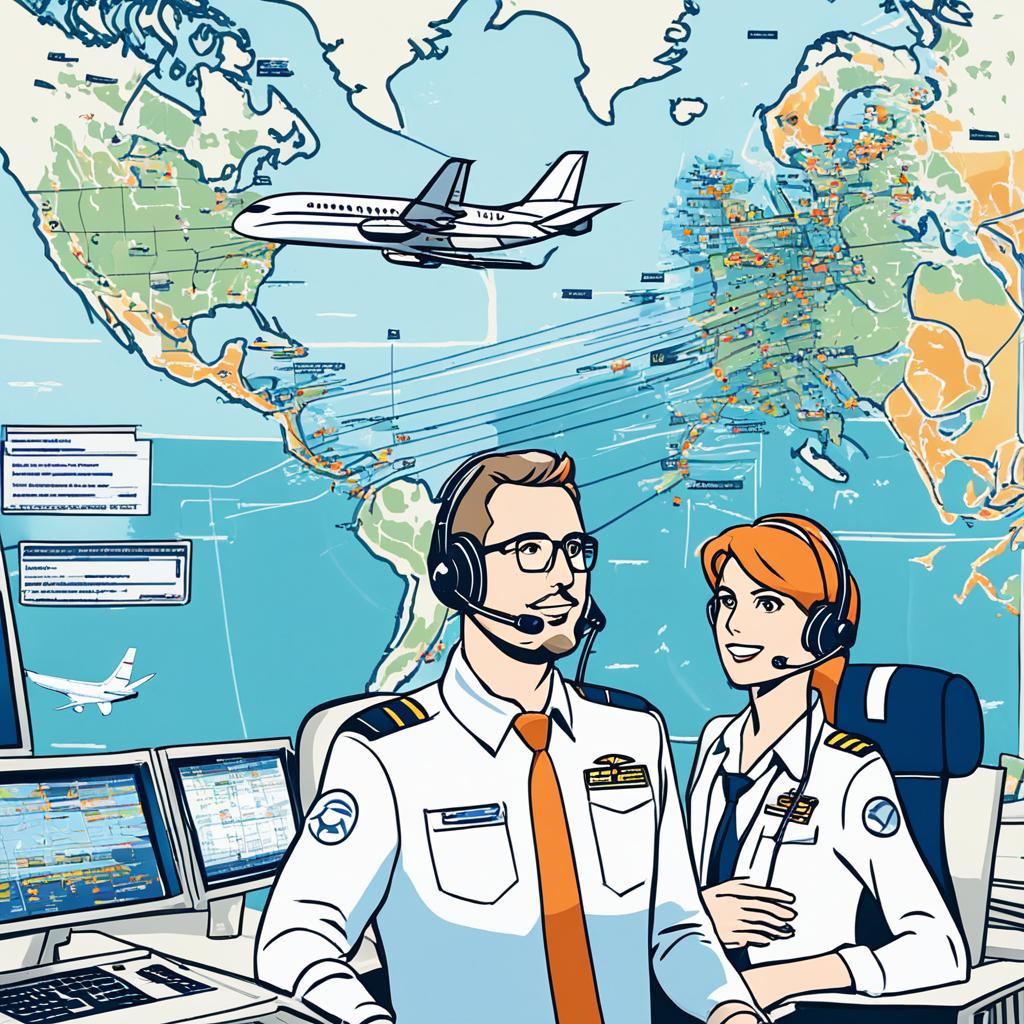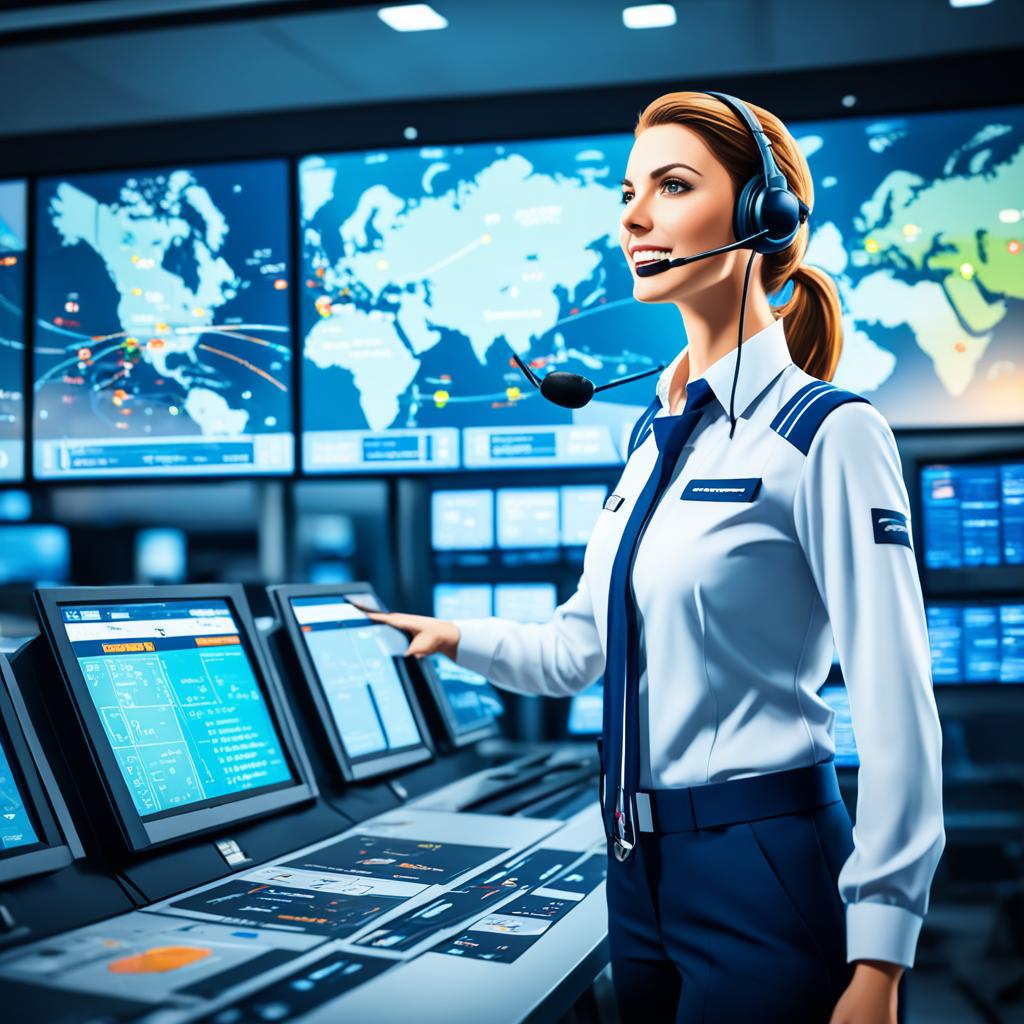Have you ever wondered what it takes to ensure the smooth operation of aircraft in the bustling aviation industry? It’s not just the pilots and cabin crew who keep things running smoothly. Behind the scenes, there is a critical role played by flight operators, who are responsible for overseeing and managing various aspects of aircraft operations.
Flight operators, also known as aviation managers or aircraft operations experts, have a range of essential duties that keep flights on schedule and passengers safe. From flight scheduling to crew management, the responsibilities of a flight operator are vital to the efficient functioning of the aviation industry.
In this article, we will dive into the details of what exactly a flight operator does and why their role is so significant in aviation management. If you’ve ever been curious about the behind-the-scenes processes that make air travel possible, or if you’re considering a career in flight operations, this is the article for you.
Understanding Flight Operations: Three Main Functions
Flight operations involve various essential functions that ensure the smooth and efficient operations of aircraft. These functions include flight scheduling, aircraft maintenance, and crew management. Each of these areas plays a vital role in ensuring the safety, reliability, and overall success of flight operations.
1. Flight Scheduling
Flight scheduling is a critical aspect of flight operations. It involves meticulous planning and coordination of flight schedules to maximize efficiency. Flight operators consider several factors when scheduling flights, such as crew availability, aircraft utilization, and passenger demand. By optimizing flight schedules, operators can minimize delays, reduce costs, and enhance customer satisfaction.
2. Aircraft Maintenance
Aircraft maintenance is another key function of flight operations. Proper maintenance is essential for ensuring the safety and airworthiness of aircraft. Flight operators oversee a range of maintenance activities, including regular inspections, repairs, and adherence to maintenance schedules. By prioritizing aircraft maintenance, operators can prevent potential issues, minimize downtime, and uphold industry standards.
3. Crew Management
Effective crew management is vital for the smooth functioning of flight operations. Flight operators are responsible for managing flight crews, addressing their scheduling needs, rest periods, and training requirements. By ensuring a well-organized and qualified crew, operators can enhance operational efficiency, promote safety, and provide a positive experience for passengers.
| Function | Description |
|---|---|
| Flight Scheduling | Planning and coordinating flight schedules |
| Aircraft Maintenance | Overseeing aircraft inspections and repairs |
| Crew Management | Managing flight crews and addressing their needs |
Flight operations are a complex and multifaceted process. Understanding the three main functions—flight scheduling, aircraft maintenance, and crew management—provides insight into the critical role flight operators play in ensuring safe and efficient operations. By effectively managing these functions, flight operators contribute to the success of airlines and the overall aviation industry.
How Flight Operators Impact Airline Business

Flight operators play a crucial role in the success of an airline business. Their expertise in fuel optimization, crew management, and real-time data analysis has a direct impact on operational efficiency, customer satisfaction, and overall profitability.
Fuel Optimization: One of the major costs for airlines is fuel. Flight operators are responsible for planning and optimizing flight routes to minimize fuel consumption. By considering factors such as wind patterns, altitude selection, and efficient routings, they ensure that the aircraft consumes fuel as efficiently as possible. This not only reduces costs for the airline but also has a positive environmental impact by reducing carbon emissions.
Crew Management: Well-rested and prepared flight crews are essential for safe and efficient operations. Flight operators manage crew scheduling, ensuring that pilots, flight attendants, and other crew members have adequate rest periods and are available for duty when needed. Effective crew management leads to enhanced performance, lower fatigue-related incidents, and improved customer satisfaction.
Real-Time Data Utilization: Flight operators leverage real-time data to make informed decisions and manage disruptions effectively. By monitoring weather conditions, air traffic, and aircraft performance, they can proactively identify potential issues and take necessary actions to mitigate delays or prevent operational disruptions. This real-time data analysis enables prompt decision-making, minimizing the impact on passengers and ensuring a smooth travel experience.
By excelling in fuel optimization, crew management, and utilizing real-time data, flight operators contribute to the overall success and competitiveness of an airline business. Their strategic planning and operational expertise enable airlines to achieve cost efficiencies, improve customer experience, and maintain a reliable and profitable operation.
The Role of a Flight Dispatcher

A flight dispatcher plays a vital role in the flight operations team, ensuring the safe and efficient operation of flights by complying with aviation regulations. Their responsibilities encompass various crucial tasks that contribute to the smooth functioning of airline operations.
One of the primary responsibilities of a flight dispatcher is to monitor weather conditions. They continuously assess weather patterns and forecasts to determine the impact on flights. By staying informed about weather conditions, flight dispatchers can make informed decisions and take appropriate actions to ensure passenger safety and minimize disruptions.
In addition to weather monitoring, flight dispatchers are also responsible for calculating fuel requirements. They work closely with fuel management teams and consider various factors such as the aircraft’s weight, route distance, and anticipated weather conditions. By accurately calculating the required fuel amount, flight dispatchers help optimize fuel usage, contributing to cost-efficiency and environmental sustainability.
Coordinating with air traffic control is another crucial aspect of a flight dispatcher’s role. They maintain constant communication with air traffic control authorities to ensure smooth flight operations. By collaborating with air traffic control, flight dispatchers can proactively address potential airspace congestion or changes in flight routes, allowing for efficient aircraft flow and minimizing delays.
To maintain smooth operations, flight dispatchers keep the flight crew updated with essential information. They provide real-time updates on weather conditions, potential hazards, and any changes to the flight plan. Effective communication between the flight dispatcher and the flight crew ensures that everyone is informed and on the same page, contributing to the safe and efficient operation of flights.
Flight dispatchers undergo specialized training to acquire the knowledge and skills necessary for their role. They must be certified by the Federal Aviation Administration (FAA) to validate their competency and adherence to aviation regulations. This certification ensures that flight dispatchers are equipped to handle the responsibilities and challenges that come with their role.
In conclusion, flight dispatchers play a crucial role in flight operations by ensuring compliance with aviation regulations, monitoring weather conditions, calculating fuel requirements, coordinating with air traffic control, and keeping the flight crew informed. Their expertise and meticulous planning contribute to the safe and efficient operation of flights, making them invaluable members of the flight operations team.
Top Careers in Flight Operations
Flight operations offer a wide range of career opportunities in the aviation industry. Whether you have a passion for planning flights, ensuring aviation safety, managing operations, or maintaining aircraft, there are diverse roles to choose from. Here are some of the top careers in flight operations:
- Flight Dispatcher: Flight dispatchers play a critical role in flight planning and execution. They work closely with pilots, air traffic control, and ground staff to coordinate flight schedules, monitor weather conditions, and ensure optimal fuel usage. A flight dispatcher’s ability to make quick decisions and communicate effectively is essential for safe and efficient flights.
- Aviation Safety Inspector: Aviation safety inspectors focus on ensuring the safety of aircraft systems and monitoring aviation facilities. They conduct inspections, investigate accidents or incidents, and enforce compliance with aviation regulations. With their attention to detail and knowledge of safety procedures, aviation safety inspectors play a crucial role in maintaining the highest safety standards in the industry.
- Aviation Manager: Aviation managers oversee the operational aspects of aviation organizations. They are responsible for ensuring compliance with regulations, managing budgets, and implementing efficient operational procedures. Aviation managers use their leadership and organizational skills to optimize operations while maintaining high levels of safety and customer satisfaction.
- Air Traffic Controller: Air traffic controllers have a vital role in managing the flow of aircraft to ensure safe and efficient operations. They monitor airspace, provide instructions to pilots, and coordinate arrivals and departures. With their exceptional multitasking abilities and calm demeanor, air traffic controllers play a crucial role in minimizing delays and maintaining the highest level of safety in the skies.
- Aviation Maintenance Professional: Aviation maintenance professionals are responsible for performing scheduled maintenance and repairs on aircraft. They ensure that aircraft are in optimal condition by following maintenance procedures and troubleshooting any issues. Attention to detail, technical skills, and a commitment to safety are essential traits for aviation maintenance professionals.
If you have a passion for aviation and a desire to work in a dynamic industry, a career in flight operations can provide a rewarding and fulfilling path. Choose a role that aligns with your interests and strengths, and embark on a journey to contribute to the safe and efficient functioning of the aviation industry.
| Career | Role | Responsibilities |
|---|---|---|
| Flight Dispatcher | Flight planning and execution | Coordinate flight schedules, monitor weather conditions, optimize fuel usage |
| Aviation Safety Inspector | Ensuring aviation safety | Inspect aircraft systems, monitor aviation facilities, enforce compliance with regulations |
| Aviation Manager | Operational management | Ensure compliance with regulations, manage budgets, implement efficient operational procedures |
| Air Traffic Controller | Airspace management | Monitor airspace, provide instructions to pilots, coordinate arrivals and departures |
| Aviation Maintenance Professional | Aircraft maintenance | Perform scheduled maintenance, troubleshoot issues, ensure aircraft safety |
Differentiating Flight Operation Officers and Flight Dispatchers
Flight operation officers and flight dispatchers, although often used interchangeably, have distinct roles within the aviation industry. Understanding the differences between these two positions can help you choose the right career path in flight operations.
A flight operation officer is primarily responsible for pre-flight preparations, including coordinating ground handling arrangements and ensuring smooth movement coordination. They work closely with various stakeholders, such as ground staff, airport authorities, and service providers, to ensure that all necessary arrangements are in place before a flight takes off.
On the other hand, flight dispatchers focus on flight planning, navigation, and weather monitoring. They play a critical role in ensuring the safe and efficient operation of flights. Flight dispatchers are responsible for creating flight plans, calculating fuel requirements, monitoring weather conditions along the route, and communicating important information to the flight crew.
The qualifications and responsibilities for these roles may vary depending on the regulatory body and organization. Typically, flight operation officers and flight dispatchers undergo specialized training programs to acquire the necessary knowledge and skills. Additionally, they may need to meet specific qualifications, such as obtaining certifications from relevant aviation authorities like the Federal Aviation Administration (FAA).
FAQ
Q: What is a flight operator?
A: A flight operator plays a crucial role in aviation management, ensuring the smooth and compliant operations of aircraft.
Q: What are the essential duties of a flight operator?
A: A flight operator has various responsibilities, including flight scheduling, aircraft maintenance, and crew management.
Q: What are the three main functions of flight operations?
A: The three main functions of flight operations are flight scheduling, aircraft maintenance, and crew management.
Q: How do flight operators impact the airline business?
A: Flight operators contribute to fuel optimization, better crew management, and effective real-time data utilization, leading to improved performance and customer satisfaction in the airline business.
Q: What is the role of a flight dispatcher?
A: A flight dispatcher ensures the safe and efficient operation of flights by complying with aviation regulations, monitoring weather conditions, and coordinating with air traffic control.
Q: What are the top careers in flight operations?
A: The top careers in flight operations include flight dispatcher, aviation safety inspector, aviation manager, air traffic controller, and aviation maintenance professional.
Q: What is the difference between a flight operation officer and a flight dispatcher?
A: Flight operation officers focus on pre-flight preparations and ground handling arrangements, while flight dispatchers primarily handle flight planning, navigation, weather monitoring, and communication with the flight crew.
